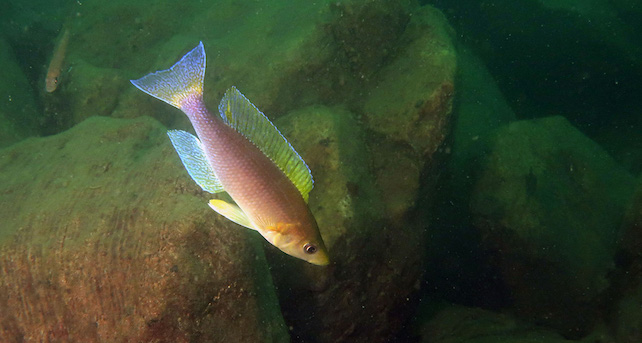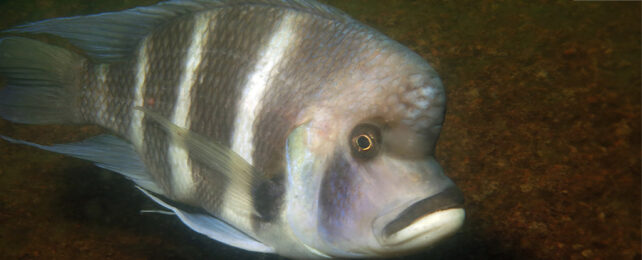Curiosity is a curious thing. It can be dangerous, as the fabled cat learned too late, but it's also a useful personality trait that can open up invaluable opportunities.
In fact, as a new study illustrates, curiosity seems to be a fundamental force behind biodiversity in the animal kingdom, inspiring individual behaviors that can eventually lead to the evolution of novel species. If not for curiosity, there may never have even been any cats to be killed by it.
The new study focuses not on cats, however, but fish – 57 different species of cichlid fish, specifically, living near the southern shores of Lake Tanganyika in Zambia.
The cichlid fish family is famous for its extreme speciation, having evolved into an incredible array of species over the past 50 million years.
The many cichlids found in East Africa are of particular scientific interest, with an estimated 2,000 species or so evolving to exploit various ecological niches within the last 100,000 years.
Much like cichlids in other East African lakes, those living in Lake Tanganyika boast highly diverse body shapes, coloration, and feeding behavior.
These adaptations have helped reduce competition within the cichlid family, letting them adapt to new niches rather than fighting among themselves over limited resources.

Exploratory behavior is a key personality trait for animals of all kinds, from mammals to spiders, exposing individuals and populations to novel dangers as well as previously unknown opportunities.
It also seems likely to play a role in speciation, say the international team of researchers, but the genetic details behind any such adaptive behavioral variations are not well-understood.
In the new study, scientists from a variety of institutions throughout Europe joined forces and used the cichlid family's speciation boom as a case study to shed light on how exploratory behavior might influence fish adaptations to various niches.
The team, led by evolutionary biologist Carolin Sommer-Trembo from the University of Basel, spent months recording videos to document the behavior of roughly 700 cichlids that were captured from Lake Tanganyika.
Videos revealed how each fish explored its new pond in experiments, including which parts they visited within a 15-minute period.
The fish were returned to their native lake beds after the experiments.
"On the whole, large differences in exploratory behavior were observed between the cichlid species, and these differences were also confirmed under laboratory conditions," says Sommer-Trembo.
The data analysis revealed a strong correlation between a species' exploratory behavior and its habitat and body shape.
Cichlid species living near shore, for example, tend to have bulkier bodies and exhibit more curiosity than longer-bodied open-water species.
"This puts the focus back on animal behavior as driving force behind key evolutionary processes," Sommer-Trembo says.
To dig deeper into the genetic foundation of these behavioral differences, the researchers developed a new technique for analyzing genomes and comparing data across species.
This helped them identify a genetic variant in cichlid genomes that shows a strong correlation with exploratory behavior. Species bearing a "T" (for thymine) at this site in their DNA exhibit more curiosity, the researchers found, while species bearing a "C" (for cytosine) exhibit less.
Using the CRISPR-Cas9 gene-editing technology, the researchers also prompted targeted mutations in the nearby region of the fish genome. This triggered changes in the exploratory behavior of fish, resulting in an apparent boost of curiosity.
The human version of this gene mutation has been linked to schizophrenia and bipolar disorders, the researchers note.
"We're interested in how personality traits can affect mechanisms of biodiversity in the animal kingdom," Sommer-Trembo says. "But who knows: Ultimately, we might also learn something about the foundations of our own personality."
The study was published in Science.
